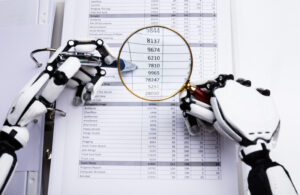
( Andrey_Popov/ Shutterstock)
A cumulative group of AI and law experts from Johns Hopkins University is working to develop a professional system system effective in figuring out tax loopholes much better than tax accounting experts. The goal is to decrease the annual tax area, estimated to be around $500 billion, that develops from the change of tax laws.
The research study hall is developing an AI system called Shelter Examine. This software application will enable Congress, the irs, or courts to examine recommended tax legislation or judgments for unexpected loopholes.
” That’s why we call it Shelter Examine– it looks like a spell checker, nevertheless for tax shelters,” mentioned lead researcher Benjamin Van Durme, a Johns Hopkins computer system scientist concentrating on AI, in a Johns Hopkins Center brief post “We want to establish a system that may take a look at proposed adjustments in the law and alert Congress and the irs about ramifications for the tax code or alert people making up new policies about unanticipated unfavorable results.”
Van Durme is registered with by Andrew Blair-Stanek, a University of Maryland law instructor and tax attorney who is similarly a Ph.D. student in Van Durme’s computer system innovation program, in addition to student Nils Holzenberger.
The twisted web of U.S. tax laws can frequently enable taxpayers to avoid tax liability by incorporating many judgments from Congress, the Treasury, the irs, and associated court options.
Making an AI that can understand and utilize this detailed tax law as masterfully as a human tax specialist may be a hard possibility. The legal language is detailed, and the tax code includes numerous pages with tables important for equating tax outcomes. In this early stage of the task, the group has in fact try ChatGPT and GPT-3, nevertheless both AI styles were stymied by the tax code.
 ” GPT-3 was absolutely baffled by the tax code,” mentioned Blair-Stanek in a Center brief post. “In fact turning a coin on these would get 50% of the issues we were asking right, and GPT-3 simply got about 70%. And these were just basic issues about the tax code like ‘so-and-so is a reliant, makes $100,000 a year, does this tax location usage?’ It might not handle it.”
” GPT-3 was absolutely baffled by the tax code,” mentioned Blair-Stanek in a Center brief post. “In fact turning a coin on these would get 50% of the issues we were asking right, and GPT-3 simply got about 70%. And these were just basic issues about the tax code like ‘so-and-so is a reliant, makes $100,000 a year, does this tax location usage?’ It might not handle it.”
In spite of these initial issues, the researchers remain favorable, and preliminary experiments have in fact been ensuring when using GPT-4, OpenAI’s most present huge language style that boasts expanded believing capabilities.
The heat is on for making advancement with this task, as the group is stressed that corporate-funded efforts may outmatch them in developing equivalent AI systems that may perhaps find a lot more tax loopholes.
Nonetheless, the researchers similarly believe their AI may be changed for broader applications in fields like medication and service, highlighting the substantial implications of their work: “I’m preparing to invest the rest of my occupation trying to make it work,” Blair-Stanek mentioned.
Associated Products:
Payment Rip-offs at Record Lows Thanks to Analytics and AI, Visa States
Making Use Of AI to Automate, Handle, and Accelerate Rip-offs Avoidance